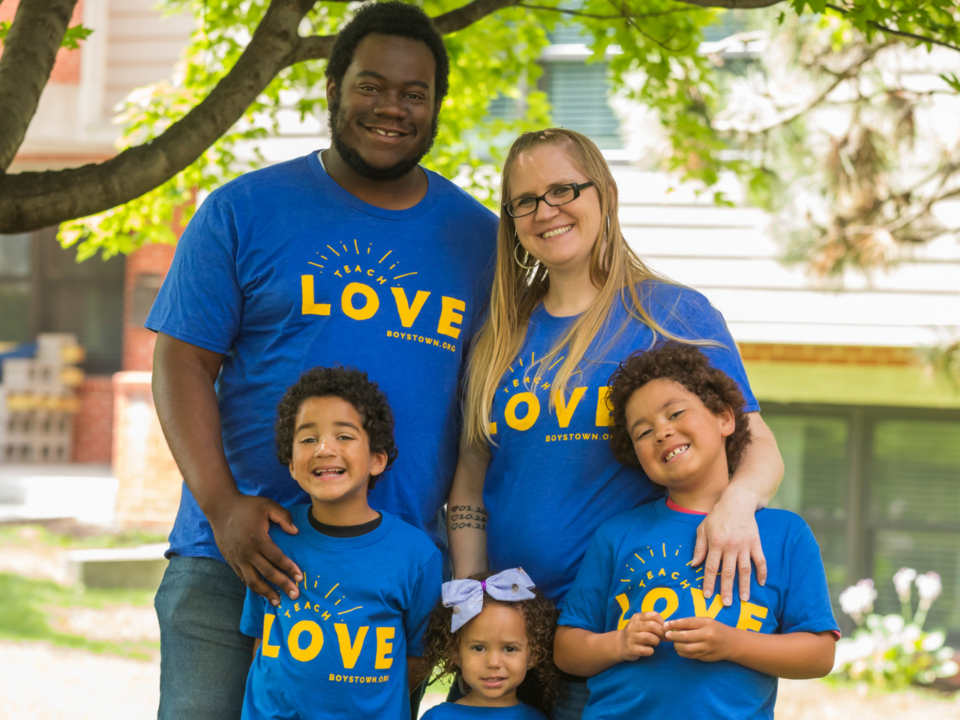Rashain Carriere-Williams, the Executive Director of Boys Town Louisiana, has been involved with the organization for 20 years and has watched it grow from its first location at a green house that was formerly an emergency boys’ shelter on Frenchmen Street and Royal Street, to multiple locations across New Orleans. However, Boys Town has a rich history in the United States.
Boys Town began in Omaha, Nebraska in 1917 where Father Edward Joseph Flanagan worked with men in prison where he began to understand their struggle and how preventative measures can save wayward youth from sharing the same fate. He created a residential program for troubled boys to learn life skills and foster their education until they graduated from high school. In the 1980s, the program grew, spread regionally (including into New Orleans), and strengthened into the national organization it is today.
As a research-based organization, Boys Town works off a proven model of care that works best with people ages 12-17. An organization called Green House in New Orleans adopted this model until Green House closed and Boys Town was able to swoop in and continue offering support to the community.
As their flagship program, Boys Town served children within the juvenile and foster care system who were struggling to adjust to new homes due to trauma and behavioral issues stemming from their trauma. This is where Boys Town would assist in learning skills that can replace the behaviors that developed maladaptively to help get their needs met. Today, their Intervention and Assessment Shelter, or emergency shelter, is located on the West Bank in Gretna where they house up to 16 boys.
“These are kids that have been in crisis situations who may need to be removed. We are only removing the kids temporarily while the adults around them, like Boys Town, their probation officer, or their foster care worker attempt to find out if they can go back home with the proper resources in place, or see if the kid needs to be removed because of a safety issue so they can be moved for more long-term care. This could be foster care, another relative, or into another Boys Town program,” shares Carriere-Williams.
These long-term residential programs foster a sense of stability through a family-style environment. This program allows six children to enjoy the care of a married couple within a traditional home on the West Bank. This environment helps children learn what a healthy couple’s relationship may look like, how to interact with others within a family structure, and more. Children also go to outside school, can go to outside therapy, to the doctor and orthodontist, and participate in extracurricular activities.
Shortly after Hurricane Katrina in 2007, Jefferson Parish approached the organization about starting community-based programs. While the parish has plenty of initiatives to prevent children from being removed from the home, Boys Town could provide research-based methods of prevention that helped mitigate common issues that lead to behavioral issues and family services intervention like job insecurity, home insecurity, and more. The organization offered the Metropolitan Area’s families in-home services for 12 weeks that help build parenting skills, communication skills, and relationship-building skills. Utilizing resources, support, and one-on-one intervention, Boys Town goes in twice a week to help strengthen that family in need.
The program Carriere-Williams is most proud of is the Early Head Start program which began when the national office of Head Start approached local community-based organizations that were interested in expanding into the early childhood space. Data they presented showed that children involved in early education make large improvements and advances, and they start kindergarten more prepared than their peers who did not attend an early childhood program.
Since the data showed that familial support largely affected the child’s success, Boys Town’s Head Start program, created through a partnership with Head Start and private education centers, focuses on family involvement and staging family interventions to address issues within the family unit by providing high-quality care and education for children through early childhood care centers. All 168 families go through an assessment process to find “strengths and stressors” that will pair them with research-based family interventionists to address problems and build those strengths.
“We feel like that support is a difference-maker. Once those babies get that early childhood education, we also help that family so that they’re in a better space at year three when babies exit early education. We’re also teaching them how to advocate for themselves. We’re teaching them how to be involved in education while providing them structures for them to have input and involvement in their children’s education,” says Carriere-Williams.
The nonprofit’s newest program is called Successful Futures, which is meant to lessen the struggle for children aging out of the program at 18. Successful Futures teaches job readiness skills to 16-year olds still within Boys Town. These skills include how to interview, how to look for a job, and other soft skills to be employable. Afterward, they begin a career education program that explores the different career paths available to them that align with their interests. Upon choosing a career option, a workforce development program kicks off that helps create an individualized plan to enter that industry through internships, apprenticeships, and mentors. Finally, a case manager stays involved with the young adult from six months to a year and assists with finding housing, acquiring uniforms, and other related career-success tasks.
In terms of upcoming events, on September 29, Boys Town is holding its The Spirit of Youth Gala to support and recognize its youth. Program attendees will all receive a reward for their great work despite the difficult circumstances and traumatic backgrounds they came from.
To volunteer, donate, sponsor a program, or become a mentor, visit their website at boystown.org.

